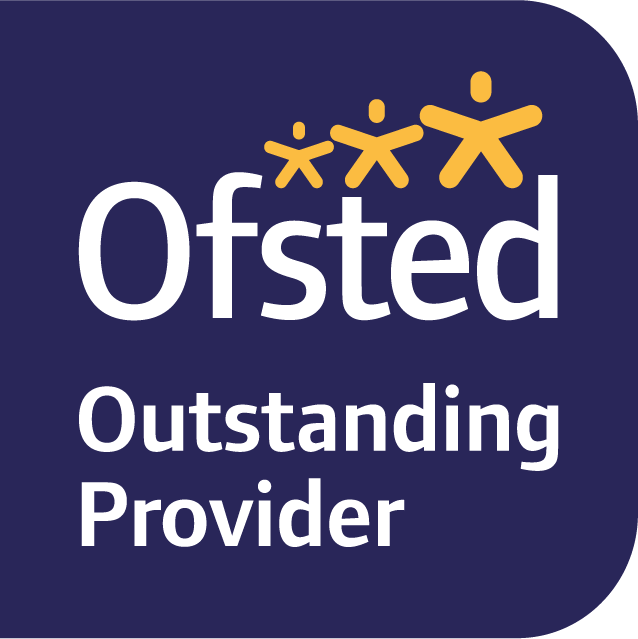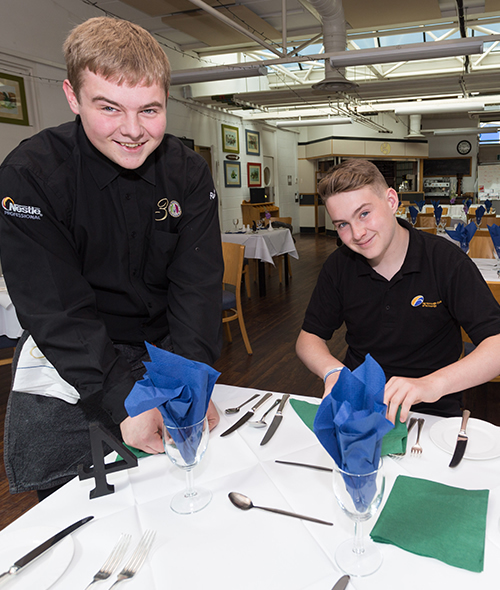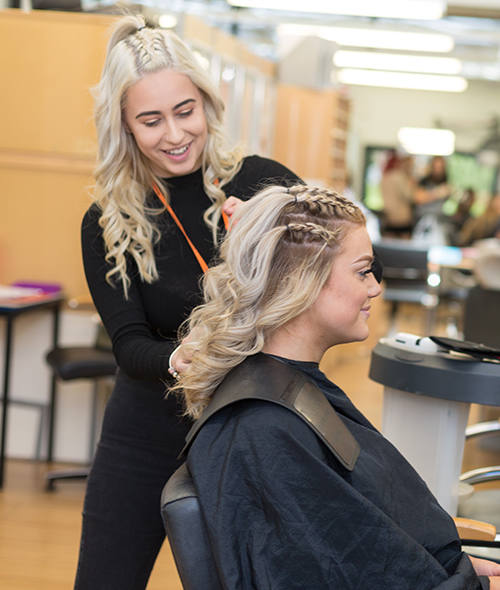1. Choose up to two of the A Level subjects below and apply for these online
- Business
- English Language and Literature
- History
- Mathematics
- Media Studies
- Photography
- Physics
- Psychology
- Sociology
2. Choose one of the Level 3 BTEC or T Level subjects below:
- Aeronautical Engineering
- Assisting Teaching (T Level)
- Creative Media Production
- Digital Production, Design and Development (T Level)
- Early Years, Education and Childcare (T Level)
- Engineering
- Music and Music Technologys
3. Tell us which BTEC or T Level course you wish to study during your college interview
We do everything possible to make sure your choices work, but some courses will inevitably be taught at the same time and make it impossible to combine.
- Two A Levels: Sociology and English Literature and Language
- Level 3 BTEC in Performing Arts
"I couldn’t decide between the academic and vocational subjects, because I still wanted to study performing arts, but also have a route in to primary school teaching via my A Levels. Also, I wanted a mix of coursework and assessments throughout the year which would be marked. Then I can sit my A Level exams at the end of the two years, which would be the stressful exam part. The consistent marking in my BTEC has helped to take off a lot of the stress.
"All of my courses are linked in some way, and blend together – I was studying iambic pentameter in English, and then we studied Shakespeare in Performing Arts, and it really helped me to perform the piece well, as I’d already learnt how to break it down and understand it. All of my courses are creative, and they blend together well."
These courses are taught in a more subject-orientated setting with an emphasis on the practical skills needed for a specific profession. Practical assignments make up most of the assessments and lead to UCAS points for university applications. You can study a one A Level equivalent over one year or a two A Level equivalent over two years.
A Levels are mostly classroom-based, where you will study subjects in depth. They are typically assessed by exams and give you a broad choice of options to progress to, either at university or in employment. They take two years to complete and also lead to UCAS points.
T Levels are new two-year technical programmes that have been designed with employers to give young people the skills that industry needs. When you complete a T Level, you’ll be able to choose between moving into:
- A skilled occupation
- Degree-level apprenticeships
- Higher-level technical study, including university
Studying a T Level gives you a technical alternative to A Levels and will help you to get a skilled job. T Levels will provide a mixture of:
✓ Technical knowledge and practical skills specific to their chosen industry or occupation
✓ An industry placement of at least 45 days in their chosen industry or occupation
✓ Relevant maths, English and digital skills
✓ Common workplace skills








